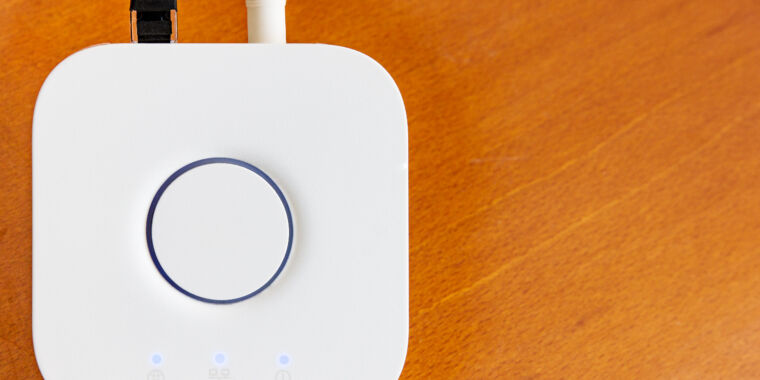cross-posted from: https://feddit.uk/post/7783032
When I started at Ars in the summer of 2022, the next generation of smart home standards was on the way. Matter, an interoperable device setup and management system, and Thread, a radio network that would provide secure, far-reaching connectivity optimized for tiny batteries. Together, they would offer a home that, while well-connected, could also work entirely inside a home network and switch between controlling ecosystems with ease. I knew this tech wouldn’t show up immediately, but I thought it was a good time to start looking to the future, to leave behind the old standards and coalesce into something new.
Instead, Matter and Thread are a big mess, and I am now writing to tell you that I was wrong, or at least ignorant, to have ignored the good things that already existed: Zigbee and Z-Wave. I’ve put in my time with Wi-Fi, Bluetooth, and various brittle combinations of the two. They’re useful for data-rich devices and for things that can stay plugged in. Zigbee and Z-Wave have been around, but they always seemed fidgety, obscure, and vaguely European at a glance. But here, in the year 2024, I am now an admirer of both, and I think they still have a place in our homes.



What does “vaguely European” even mean?
That’s how I’d describe Tommy Wiseau or John Waters lol
Gillian Anderson in her later career also.
I would have never thought about it, but somehow you’re exactly right.
Haha, I have no idea. Possibly less corporate, more “small, simple, open system that others can contribute to”.
I can only speak in vagueness on the “european-ness”, to be honest.
HASS/Zigbee have an open, european feel to me.
HomeSeer has a very american “this is the way we’re doing it, it costs this much” feel.
My mind went to IKEA-like with a funny name and modern styling.
But I have no idea if that’s what the author meant.
I had the same thought. Is it an insult?
I don’t think so.
I think it just means they seemed like standards which were more prevalent in Europe, meaning support might be better for Euro hardware, or that the (presumably) American market was leaning in a different direction.
A wall plug came with a Schuko adapter…